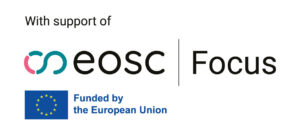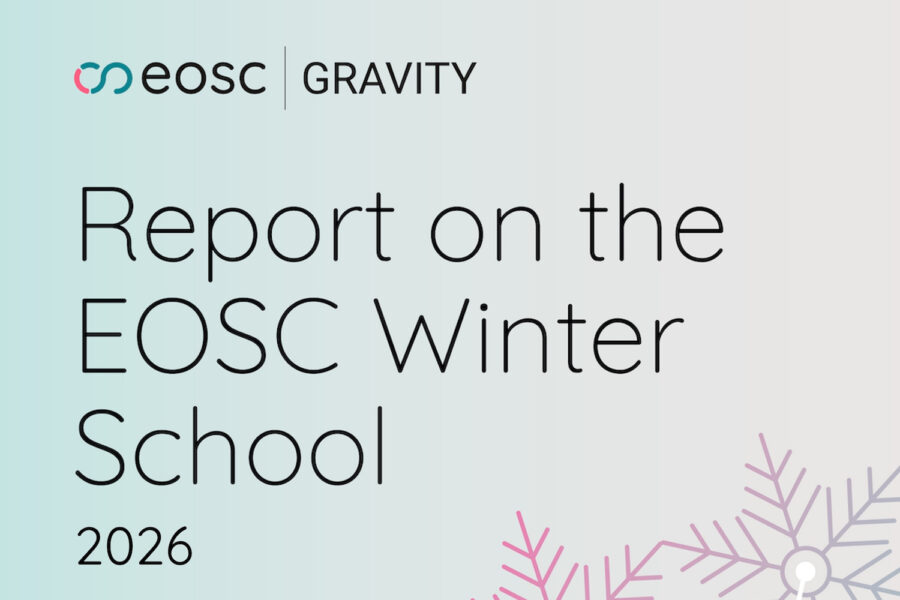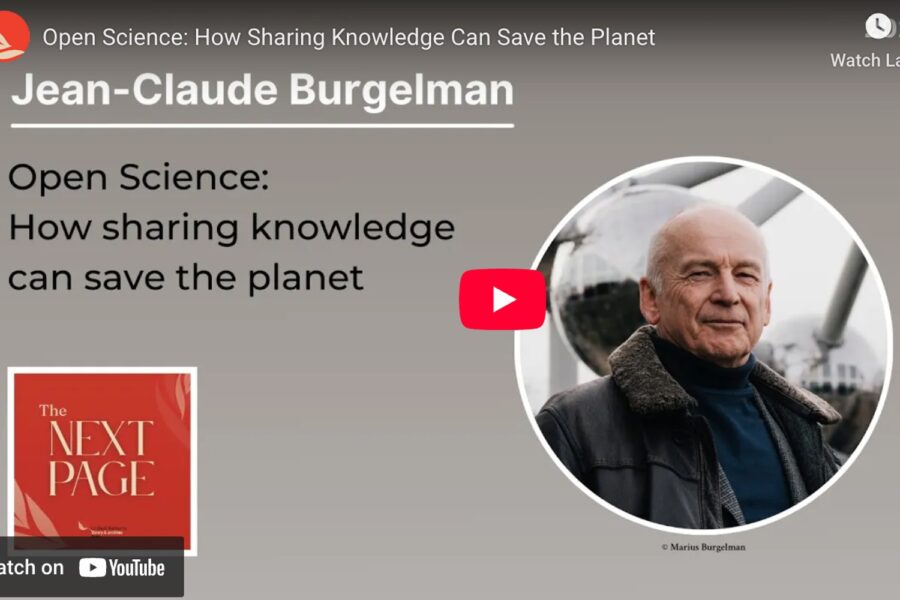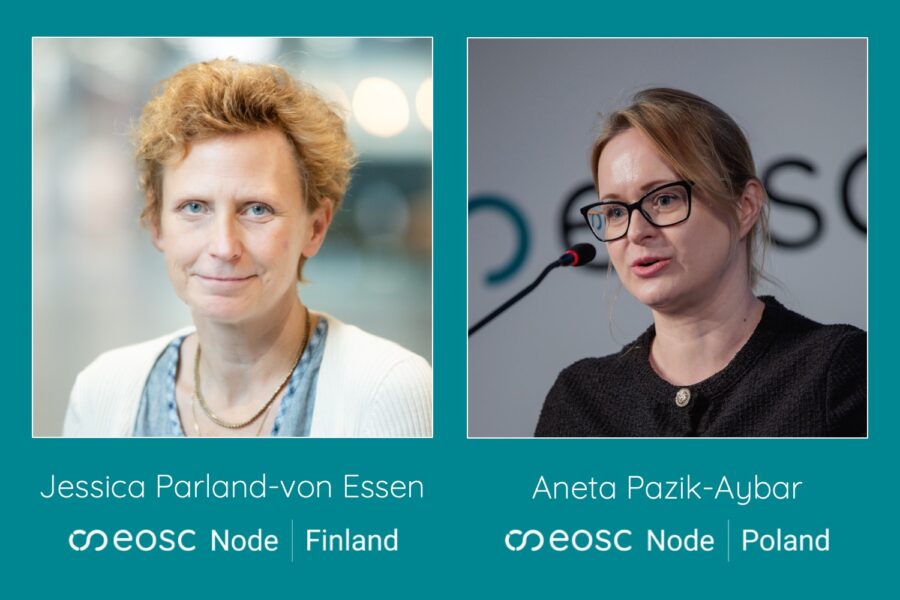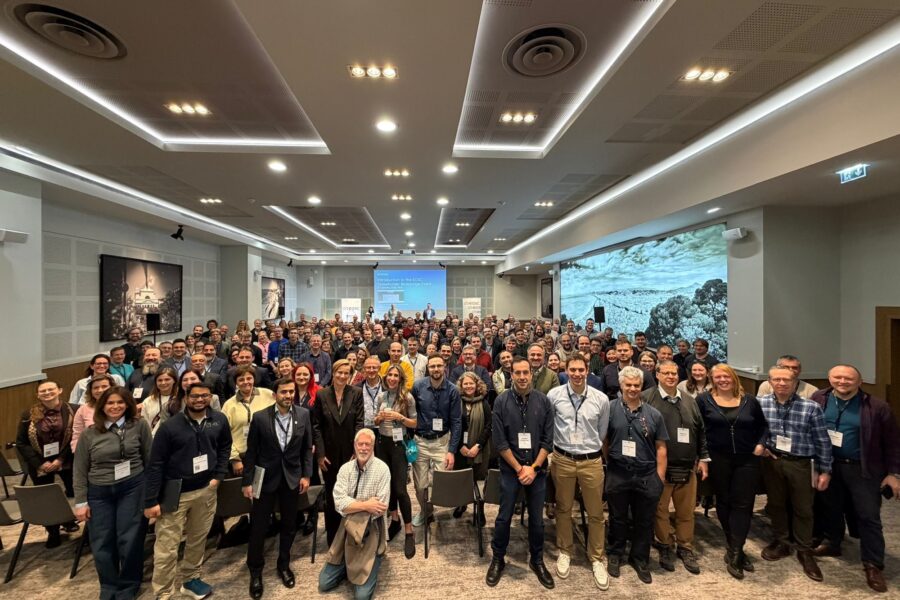PARIS — France hosted its third National Tripartite Event on 12-13 September 2024 at Institut Henri Poincaré. Co-organised by the National Institute for Research in Digital Science and Technology (Inria) and the French Ministry of Higher Education and Research (MESR) this lunch-to-lunch meeting was attended by roughly 100 participants to explore key activities for the advancement of EOSC and to discuss its future governance.
Interventions from the Tripartite Collaboration
Volker Beckmann and Laurent Crouzet, representing the MESR, focused on EOSC’s pivotal role in the digital transformation of research in France. Targeting a complex mix of services, EOSC aims to offer a streamlined and transparent network of interoperable data and services for use by researchers. Upcoming strategies will focus on extending digital transition initiatives, with particular support for Research Performing Organisations (RPOs) in France, while also empowering early-career researchers.
In her presentation, Ute Gunsenheimer, Secretary General of the EOSC Association (EOSC-A), highlighted the growing involvement of French institutions in EOSC-A. Eight entities from France expressed interest in becoming future EOSC Nodes by participating in a recent questionnaire launched by the Tripartite Governance to gauge general interest across Europe. The Tripartite Governance is the key driver for the future success of the EOSC Federation, with the continued participation of the community being crucial for its growth. Gunsenheimer emphasised that the success of EOSC will depend heavily on community buy-in and sustained engagement.
Ioannis Rodopoulos from the European Commission discussed the forthcoming launch of the EOSC EU Node in October 2024. He stressed that, although decisions in the political landscape are not always final, there is significant determination to ensure the sustainability of the EOSC EU Node.
The panel session afterwards tackled complex topics such as opportunities and concerns related to collaborative initiatives like EuroHPC and the European Health Data Space; challenges in defining and federating national, regional, and thematic EOSC Nodes across Europe; and continued involvement in the EOSC-A Task Forces.
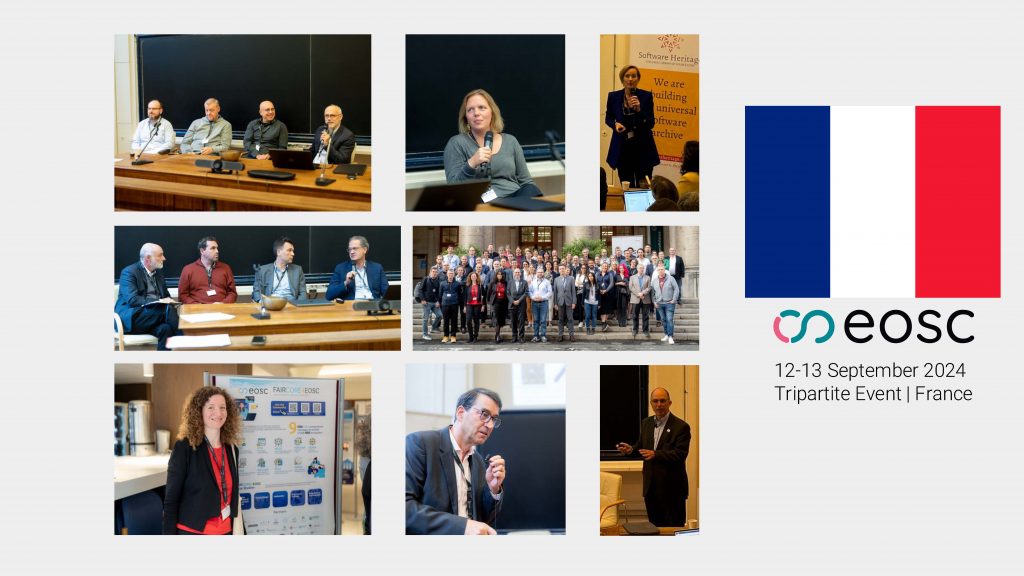
Photographs: © Inria / B. Fourrier
Unveiling the perspectives of the French community
Through the round table discussions, the French community addressed the following topics:
- Software infrastructures for EOSC
- EOSC Science Clusters
- e-Infrastructures in the EOSC context
- French participation in the EOSC Federation
In addition, a Flash Talk/Poster session was set up to demonstrate the engagement of French research in ongoing Open Science and EOSC projects in Horizon Europe (FAIR-IMPACT, FAIRCORE4EOSC, EVERSE, OSTrails, among others).
Software infrastructures for EOSC
Roberto Di Cosmo (Inria), director of the Software Heritage initiative, led a session on software infrastructure, stressing its critical role in Open Science. The session emphasised the importance of software as a pillar of Open Science and the need for dedicated infrastructure to be shared, preserved, archived, published and rewarded.
Software Heritage, the French Open Science Monitor, and Research Forges, were presented, with key discussions on the whole cycle for open source code.
EOSC Science Clusters
Etienne Augé of France Universités, and Giovanni Lamanna representing ESCAPE, explored the operational commitment of the Science Clusters to EOSC. Together with Andy Goetz (ESRF/EOSC-A), Suzanne Dumouchel (SSHOC) and Nebras Gharbi (EOSC-LIFE), the panel highlighted the contributions of the Science Clusters to the broader EOSC vision. They emphasised the importance of collaboration between scientific communities to avoid duplication of efforts and foster meaningful cross-fertilisation. The EU project OSCARS was singled out as a clear demonstration of this commitment.
The first day concluded with flash talks and a poster session. This was followed by a reception, providing an opportunity for attendees to network and discuss the future of EOSC.
e-Infrastructures and future EOSC Nodes
The second day of the French National Tripartite Event began with presentations from several e-Infrastructures, discussing their role in the EOSC ecosystem. RENATER, which provides network connectivity for most research and education organisations in France, mentioned the importance of leveraging the existing infrastructure in future EOSC plans. MESONET, on the other hand, focused on federating efforts in France and its ambition to become a future EOSC Node.
The discussion led to the idea to establish common standards to ensure equitable access, sustainability, and user-driven services. It touched on funding mechanisms, emphasising that long-term grants are necessary to support e-Infrastructures, as current procurement models may not be sustainable or inclusive enough for all service providers. Open source software and digital sovereignty were underscored as essential for the resilience of active e-Infrastructures in the EOSC ecosystem.
French participation in the EOSC Federation
Bob Jones, a member of the EOSC Association Board of Directors, discussed French institutions’ aspirations to become future EOSC Nodes. Contributions from institutions such as Data Terra showcased efforts to integrate Earth system and research data infrastructures into the EOSC ecosystem. Recherche Data Gouv sees its function as a competence center for Open Data in France, while HAL+ plays a role as a repository for open access publications, software and data. In addition, Jean-Frédéric Gerbeau, Deputy CEO for Science at Inria, seeks to contribute to the emergence of an EOSC Node, in particular in software and Artificial Intelligence standards and services.
Although there are many open questions about the development of the Federation – including the sustainability of service provision and the Rules of Participation – the response from the French research organisations is explicit: several actors want to be part of the first wave of providers in the EOSC Federation.


